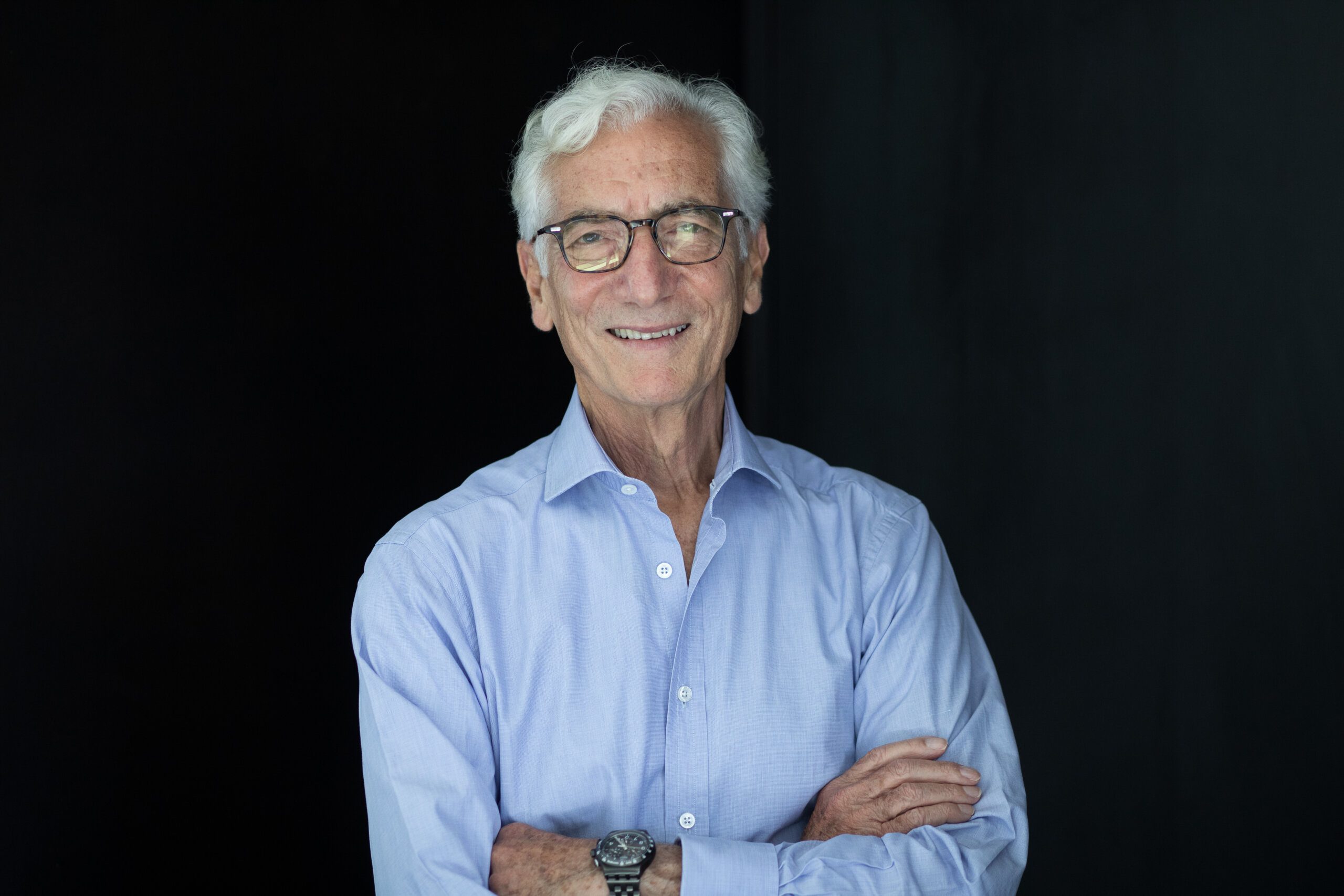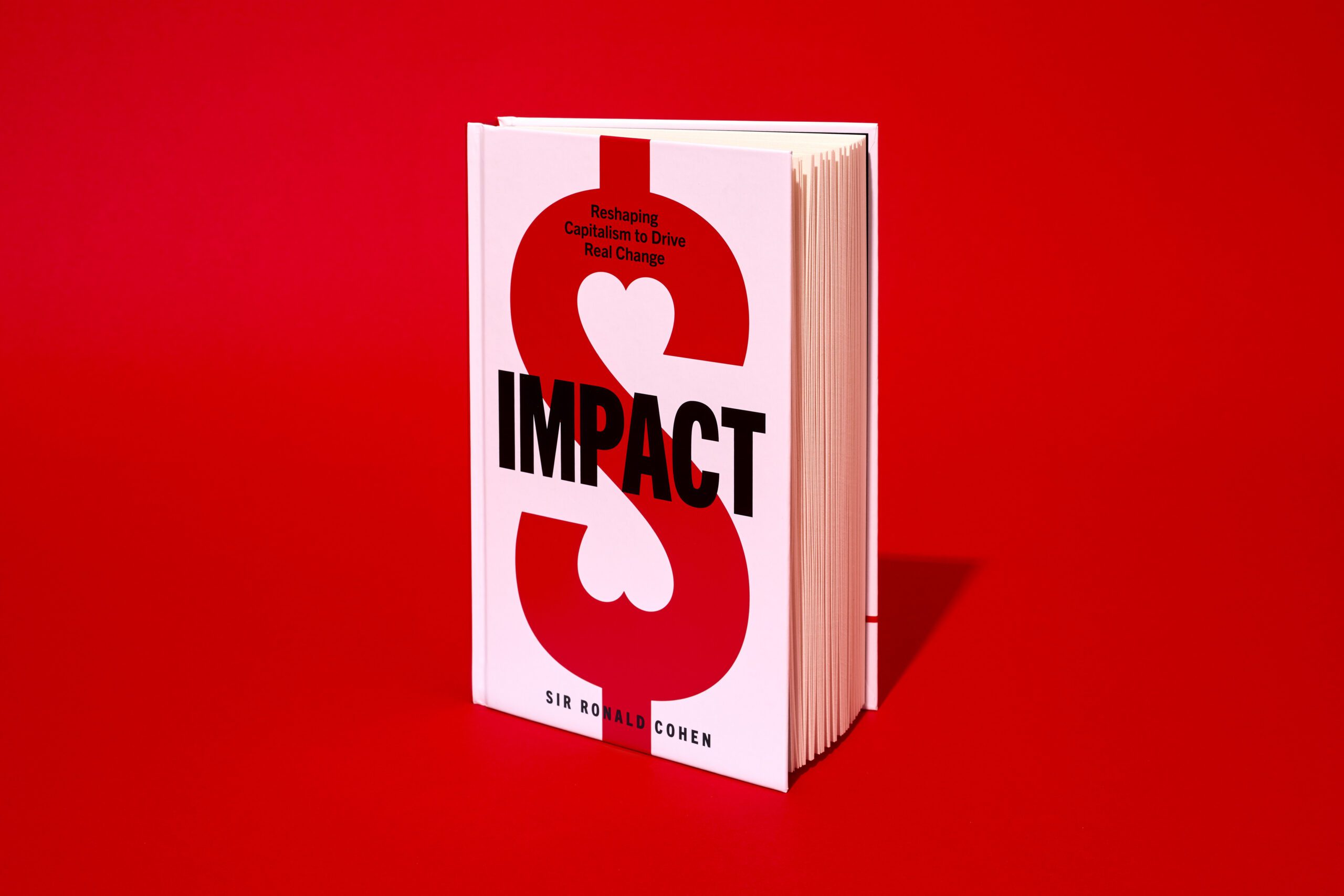The father of impact investment and British venture capital speaks about the role of social entrepreneurs in reshaping the post-coronavirus world, and explores Israel’s potential to become the Impact Nation
By Einat Paz-Frankel, Start-Up Nation Central
In the midst of an unprecedented global crisis, and while many parts of the world are undergoing a second wave of COVID-19, venture capitalist-turned-impact investor Sir Ronald Cohen is actively pushing for impact investment and entrepreneurship – not just as a means to recover from the economic crisis, but also in order to reach the world’s Sustainable Development Goals by 2030, and to preserve our planet.
Sir Ronnie, as he prefers to be called, is Chair of the Global Steering Group for Impact Investment and The Portland Trust. He is the cofounder of Social Finance UK, USA, and Israel, and the Chair of Bridges Fund Management and Big Society Capital. Considered the father of British venture capital, the cofounder and leader of Apax Partners is also the driving force behind the impact investment movement, having pioneered multiple initiatives globally.

Earlier this year, he published an important book about the Impact Revolution, entitled IMPACT: Reshaping Capitalism to Drive Real Change; most recently, he joined Start-Up Nation Central’s CEO Prof. Eugene Kandel at the Milken Institute Global Conference for a panel discussion with leading figures in the impact arena, titled “The Impact Revolution: From Sustainable Development Goals to Solutions.”

We sat down for an exclusive interview with Sir Ronnie to speak about the latest trends in impact investing and its importance.
Question: The UN has set 17 sustainable development goals (SDGs) – including no poverty, zero hunger, clean water, clean energy and sustainable cities – to achieve by 2030. Can we reshape our planet within 10 years to attain these goals?
Answer: The temperature keeps rising and we can see the consequences in fires, floods, and coral reef deaths around the world. Time is running out, but we’re only going to reverse the direction if we get companies to change their behavior. If we do so, then we will see change come quite quickly.
Q: We need a whopping $30 trillion to achieve all SDGs by 2030. How are we going to finance that?
A: This is why we must get large corporations engaged in the effort. They, too, must work toward meeting social and environmental challenges; they can no longer just make money without worrying about the damage they cause. We can already see in the Harvard Business School dataset, correlations between companies that pollute more and lower market valuations. The higher the pollution or the environmental damage, the lower the market rating they’re getting. Impact data has already become price-sensitive information.
I think this is the only way we can achieve the SDGs. Audited impact-weighted accounts published by companies will enable us to link every impact line to specific SDGs. Impact transparency is crucially important if we want investors who are our allies to influence companies to deliver real improvement in our society and planet.
Q: Has COVID-19 slowed this positive process?
A: I think it’s actually accelerating it, because COVID-19 is reshaping our habits and beliefs, and leading us to question capitalism, democracy and everything else: the way we work, the way we interact, the way we live – so it opens the door to significant change.
Corona is also creating very difficult challenges for governments. They are going to emerge from the economic crisis with heavy debt, which they’ve taken on in helping people and businesses to make it through COVID. They will be constrained on spending money on social services in the way they will need to do because of high levels of unemployment, homelessness and poverty. So, governments need to mandate impact transparency so that investors can make intelligent decisions that are based on risk, return and impact. This is the way to change the behavior of companies so that they help governments achieve their social and environmental objectives.
$200 billion of environmental damage in a single year
Q: Some governments in Europe and elsewhere push for a green recovery, claiming it’s the only way to come out of this crisis. Is it?
A: It’s no use having governments talk to one another about reducing pollution. Pollution is mostly created by companies. If you look at Harvard Business School data (Impact-Weighted Accounts Initiative), it shows in dollar terms the environmental costs created by 1,800 companies. You’ll see some companies creating nearly $200 billion of environmental damage in a single year; you’ll see 250 companies creating more environmental damage annually than they’re making in profit; and 600 companies creating damage equivalent to more than 25% of their profits.
If you want to change the behavior of these companies, the most powerful way of doing so is impact transparency, so that investors, consumers and employees can take their impact into account in making decisions. Polluting companies will suffer a reduction in their stock market valuations.
Q: How can impact investment better prepare us for the next pandemic?
A: I think impact investment is a powerful tool in fighting pandemics. We could have introduced impact approaches in order to boost the development of accurate, fast-response Corona tests. In fact, I wrote a Barron’s op-ed proposing a $10 billion pay-for-success initiative to achieve this.
There are lots of lessons we’re going to have to learn from this pandemic in order to prepare for the next one. Boosting entrepreneurial innovation to develop tests, and maybe even therapies and vaccines, and doing so at the onset of an epidemic, will save lives.
“Israel has lagged behind in the impact space, but that’s beginning to change”
Q: Do you think Israel, the Startup Nation, can become the Impact Nation?
A: Israel can be one of the world’s impact leaders, just as it is one of the world’s tech leaders. The reason has to do with cultural and religious concepts like Tikkun Olam, where Jews accept the broader responsibility to repair the world, as much as the ability to innovate and improvise. Israel has lagged in the impact space, but that’s beginning to change. I hope that two years from now we will be able to have a conversation about just how much impact momentum has built up in Israel. Start-Up Nation Central has a role to play here, because tech entrepreneurship and impact investment will be closely linked.
The business and investment worlds are moving towards making decisions on the basis of risk, return and impact. Young people started the trend by buying products from companies whose values they share; they refuse to work for companies creating harm. Investors became aware that this trend would affect the value of their investments in companies. Many investors were, in any case, thinking in the same direction. And so today we see $30 trillion, equivalent to a third of all professionally managed money, flowing to achieve impact on people and our planet, as well as profit.
The anomaly today is that this $30 trillion has little or no transparency on the impact created by companies. And so, just as we brought transparency on profit in 1929 through the use of generally accepted accounting principles and auditors, we must do the same today regarding impact. Israel could lead the world in mandating impact transparency, which is the new frontier for society and capitalism alike.
To request information about Start-Up Nation Central’s latest impact initiatives, click here.
